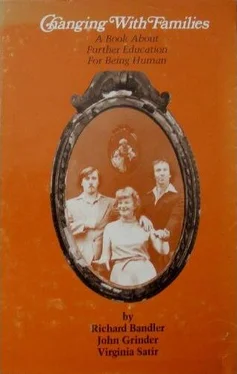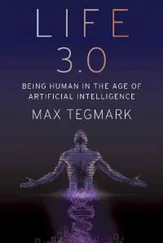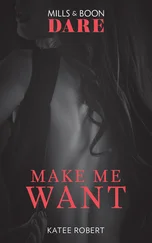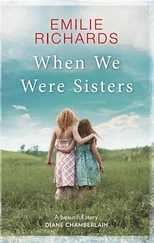CHANGING WITH FAMILIES
A Book About Further Education For Being Human
To Bob Spitzer,
who has made possible
so much of the actualization
of our creativity.
The process of writing this book was an opportunity for the three of us to change, to grow and to integrate parts of our experience of doing family and individual therapy. We came to understand explicitly how the communication skills we use in those contexts applied to the writing of this book together. We took three very different models of the world — three different types of backgrounds — and, finding a way to use our common skills to communicate with each other, we were able to put onto paper the knowledge we had gained. So we want to tell our readers some of the ways which we found delightful and useful to communicate, not only with families in the context of therapy, but also with each other in the process of writing this book. The very same patterns which we identify in this volume as patterns of effective communication with members of a family in the context of a therapy session are precisely the patterns of communication which we used to write this book together. We believe that our ability to be congruent in our communication is a skill we carry with us throughout our lives — both in our communication in therapy and in our other inter-personal relationships as well. It gives us great pleasure and is a continuing delight to find ways of being more effective in communicating with ourselves, with our colleagues in writing this book, and, hopefully, in communicating to you some of the excitement and joy we have experienced in the process of communication. For us, communication means experience — the ability to be in touch with what we are feeling, to see clearly what is available at a given point in time, and to hear with precision the sounds of life.
These skills, which we are constantly developing in ourselves, were the essential ingredients in the writing of this book. We want to emphasize that our desire in creating this book is to offer people-helpers some of the tools, patterns, ways of developing new choices with families which, up to this point in time, we have used only among ourselves. We invite and encourage each of you — as we will continue to do — to use these skills as an opportunity to find new possibilities for communication for yourselves and for the families with whom you work. We believe there are entire worlds of ways of being effective and creative — entirely new dimensions about human communication in our lives which we have yet to discover. Deeply,
Richard Bandler
John Grinder
Virginia Satir
This book is about people who hurt and about the people who want to help them go beyond that hurt.
The world is full of good intentions and equally well populated with the evidence that these intentions do not always come to fruition. Parents want the best for their children, children for their parents, therapists for their clients, and clients for their therapists. How does it happen, then, that these very well-intentioned people have so many relationships of pain and trouble, when the opposite is what they are intending? Our belief is that something occurs which is outside of the awareness and control of either person — a missing piece. We believe that this missing piece can be added, learned about and fully used by everyone. This book is about our ideas of doing just that with families — helping them to find this missing piece for themselves.
It is hard for us to conceive how one can really experience himself as a responsible person without a thorough understanding of the difference between what people intend when they communicate and what the outcome of their communication is. We believe that all people, given the tools, not only want to, but will, learn and change. This is a normal direction of life asserting itself. We believe that all people have all of the skills they need; our job as family therapists is to make these skills accessible and useful for them. In this sense, no person is fragile. That is, everything which affects a human being or concerns him can be openly talked about, if it is presented to him in an acceptable way and at a time when he can hear it. In fact, for us, it amounts to a personal insult to behave toward another human being as though we could not openly acknowledge him and all of his parts. We believe that this is caring in its most exquisite sense. It is sometimes necessary for the therapist, when clearly allied with the growth goals of the one with whom he is working, to team up with the parts of that person desiring growth in such a way that the therapist becomes a tough leader in relation to the person's obstructive parts. It is difficult sometimes for a therapist to be present while another person is struggling, yet constructive struggle is the process by which we learn and grow. We believe that at any point in time every person is doing the best he can with the knowledge he has. We respect that, and at the same time we respect the wish and ability to change, and we are willing both to lead and to support the struggle to do so. In this sense, then, there need be no failures.
Our approach assumes that the therapist in his person is the chief tool for initiating change. Our view is that the therapist models that which he expects to change. We are speaking specifically of the process and not of the content . Our thrust is to change coping, which is a process, and, therefore, the therapist's use and teaching of process is a primary consideration. To be especially emphasized is the condition of the therapist's sensory channels: His ability to see, his ability to hear, his ability to feel, smell and taste need to be developed, operating, and clear. In our model it is essential that the therapist detect information and patterns of communication instead of deducing them. Furthermore, the therapist must be able to discriminate between inputs that trigger learnings and experiences from the past for himself and those which come entirely from the person with whom he is working. This means that the therapist is clearly able to distinguish between himself and his boundaries and those of the persons outside of him. It makes a great deal of difference in the therapeutic outcome whether the therapist talks and reacts to an extension of himself or to the person sitting in front of him. Keeping straight what's you and what's me is the thrust of all of this, and producing a meeting between the two is the goal.
It is our belief that at this point in time the evolvement of the condition of being human is only in its infancy. Therefore, it behooves all of us to become explorers and not judges; we see ourselves as making a contribution toward the further education of being human. As a matter of fact, we expect that we will come out of each of our experiences with other people a little changed. If we don’t, then we feel that we will have fallen into the category of judging.
What we are presenting here is a model of the step-by-step process which fills in the missing pieces between what people intend in their communication and what the outcome of that communication actually is. Our method is to create new experiences instead of working to eliminate the old ones. Many therapeutic models of the past seem to have been built around the idea that there is an ideal person and, thus, the concepts were to be used as a way of altering the personality to fit the "ideal" mold. We believe that there is no universal model of a human being; we believe that each person has his own model of his own ideal. We are glad of it, and this uniqueness is what we strive for in our work. This is consistent with the biological fact that each human being is truly unique.
Читать дальше











